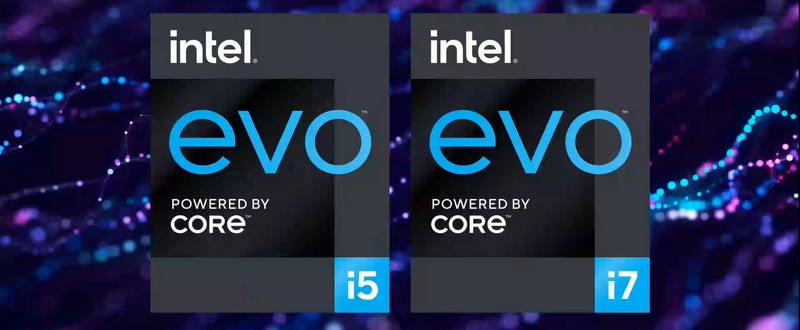
Last May, Intel unveiled Project Athena , an initiative for laptop manufacturers to improve their (laptop) consumer experience. The program, in addition to fixing a number of important indicators for the user, such as the time to get out of sleep, fast charging time, and so on, provided for the creation of test laboratories and a consortium of manufacturers united by a common idea - in general, it was good for everyone. There was only one problem: Project Athena did not interact with the end user in any way and did not tell him about herself. To correct this shortcoming, the program was restarted and given a new name - Intel Evo.
Indeed, it turned out somehow unfair: Project Athena was invented in order to make life easier for laptop users, while these same users could not even determine which laptops met its requirements and which did not. Consumer doubts have now come to an end: Certified laptops will receive an unmistakable Intel Evo emblem with the company's new logo style.
As for the general direction of the program, it remains unchanged. When you buy a laptop with an Intel Evo nameplate, you can be sure that the manufacturer has done serious work with every component for your convenience. In its second edition, the hardware requirements are as follows:
- 11th generation Intel Core i5 / i7 processor with Intel Xe graphics,
- NVMe SSD with a volume of at least 256 GB,
- dual-channel memory with a volume of at least 8 GB,
- Wi-Fi 6 support,
- Thunderbolt 4 support,
- Bluetooth 5 with Audio offload support.
The consortium suggests using Windows 10 or Chrome OS as the operating system.
In reality, Evo specifies a huge number of different parameters, the existence of which the average user does not even know, but which add up to give the impression of a laptop class. Here are just a few examples showing the depth of the standard:
- at least two microphones with a signal-to-noise ratio of at least 63 dB and a loudness level of ± 1 dB;
- speakers with a sound pressure of at least 78 dB at a distance of 50 cm, bass frequency less than 353 Hz;
- webcam with a resolution of at least 720p at 30 FPS;
- etc.
And here are the parameters that are more understandable to us:
- wake up from sleep in less than 1 second;
- 9 or more hours of autonomous operation of systems in real conditions;
- up to 4 hours of system operation after less than 30 minutes of fast charging;
- and everything else is no less strict than in the previous version of Project Athena.
The first Intel Evo models, along with other notebooks based on Tiger lake processors, are expected on the Russian market in October.